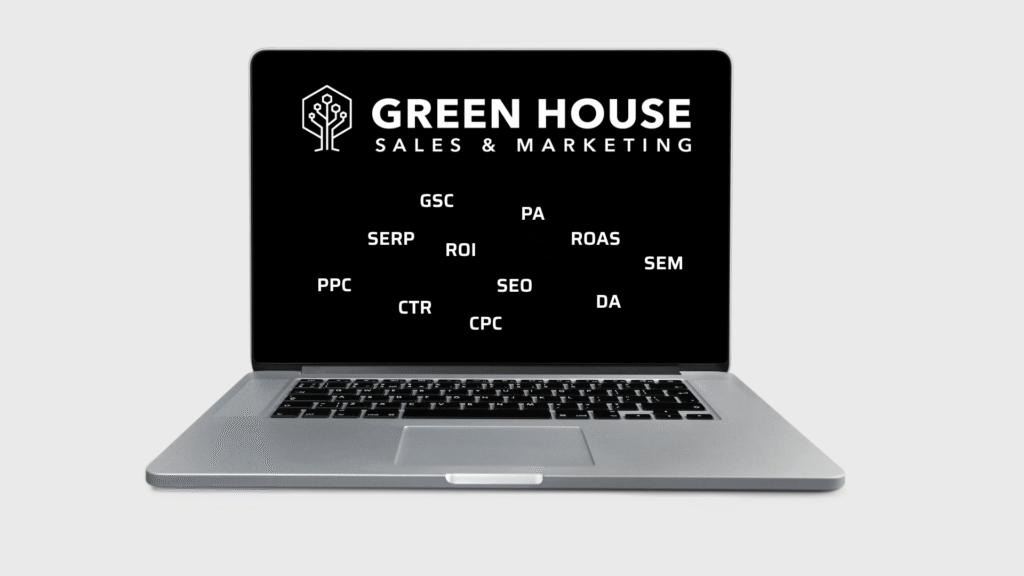Small businesses face the constant challenge of standing out in a crowded online marketplace. On top of every other challenge, this one can feel overwhelming. However, tackling it effectively is essential to succeed with digital marketing. One of the best ways to increase visibility and attract potential customers is through Search Engine Optimization (SEO). Below, we’ll explore the crucial SEO services that can propel your small business to new heights.
What is SEO and Why Does It Matter?
Search Engine Optimization (SEO) is a core element of digital marketing. It focuses on making your website more visible on search engines like Google, Bing, and Yahoo. For small businesses, SEO is not a luxury—it is a necessity.
Some businesses choose to partner with digital marketing agencies. Others prefer to build in-house skills. Either way, implementing effective SEO strategies improves both the quality and quantity of organic (non-paid) traffic to your site. As a result, you see stronger brand awareness, better customer engagement, and increased sales.
SEO involves several components, including keyword research, on-page optimization, technical SEO, and link-building strategies. Together, these tactics help search engines understand your content and rank it higher. For small businesses that want to maximize their digital marketing, investing in SEO services—and complementing them with social media marketing—can deliver long-term results.
Essential SEO Services for Small Business Internet Marketing
Here are the most important SEO services that drive online success for small businesses. Each service strengthens your internet marketing strategy and builds a foundation for growth.
Keyword Research and Analysis
Keyword research is the foundation of any SEO strategy. For small businesses, it means identifying the exact terms your potential customers are typing into Google. Instead of guessing, you can use tools like Google Keyword Planner, SEMrush, or Ahrefs to discover search volume, competition, and intent.
Competitor research also plays a role here. Looking at what your competitors rank for can highlight opportunities they’re missing. In addition, long-tail keywords—like “affordable SEO services for local restaurants”—help you reach more specific audiences. By focusing on these targeted terms, your content attracts qualified traffic rather than random visitors.
On-Page SEO Optimization
On-page SEO goes beyond simply adding keywords to your content. It’s about making sure each page clearly communicates its purpose to both search engines and users. Title tags and meta descriptions should summarize the page in a compelling way. URLs need to be short and descriptive. Images should use alt text that explains what’s in the photo while also reinforcing relevant keywords.
Structuring content with H1, H2, and H3 headings also helps both readers and search engines. Beyond the technical side, on-page SEO means improving user experience by ensuring your site loads quickly, works on mobile, and guides visitors to the next logical step.
Technical SEO Audit
A technical SEO audit ensures your site’s foundation supports long-term growth. It identifies issues that may block search engines from crawling or indexing your content.
A proper audit checks everything from page speed and mobile usability to crawlability, structured data, and site security. It also flags broken links, duplicate content, and redirect issues that might hurt rankings. By fixing these problems, you create a smoother experience for both users and search engines. Regular audits also keep you aligned with Google’s algorithm updates, protecting your investment in SEO.
Link-Building Strategies
Link building is one of the hardest but most rewarding aspects of SEO. Instead of thinking of it as collecting links, think of it as building credibility. Guest blogging on trusted websites introduces your business to new audiences while earning backlinks. Creating useful content such as infographics or case studies gives people something worth linking to.
Social media can also amplify your reach, helping your best content get shared more widely. Building genuine relationships with influencers and industry partners opens additional doors for high-quality links. Over time, a strong link profile increases your site’s authority, making it easier to compete for competitive keywords.
Content Creation and Marketing
Content is at the heart of SEO. High-quality content not only attracts visitors but also encourages them to stay longer, engage with your brand, and return for more. Blog posts, how-to guides, and case studies provide value to your audience while signaling authority to search engines.
Video and visual content add another layer of engagement, especially when repurposed across channels like YouTube, Instagram, or email newsletters. Sharing your content on social media ensures it reaches more people, while email marketing nurtures existing leads. By creating content consistently, you position your business as an authority and build long-term loyalty.
Local SEO Services
For many small businesses, local SEO is what drives the most meaningful results. Showing up in “near me” searches or local map packs often determines whether a customer chooses your business or a competitor’s.
Optimizing your Google My Business profile is the first step. From there, you want consistent name, address, and phone details across all directories. Collecting reviews, responding to them professionally, and building local citations all help you rank higher in local search. Location-specific landing pages and community engagement also strengthen your local relevance, connecting you more directly with nearby customers.
How to Implement SEO Services in Your Small Business

Once you understand the services, the next step is putting them into practice. Here’s a practical way to roll them out:
Assess Your Current Digital Presence
Start by auditing your website, social media accounts, and online listings. This helps you spot what’s working well and what needs improvement.
Set Clear SEO Goals
Decide what success looks like for your business. Is it more leads, more sales, or more traffic? Define KPIs such as rankings, conversions, or cost per lead so you can measure progress.
Develop a Roadmap
Create a timeline of initiatives, whether it’s keyword research, technical fixes, or launching a content calendar. Align each step with your larger business goals.
Optimize Your Google My Business Listing
Claim your listing, verify it, and make sure details are accurate. Add photos, posts, and regular updates to stay active in local search.
Use Schema Markup
Implement structured data like local business schema, product schema, or review schema. This gives search engines more context about your site.
Create Local Content
Develop content that ties directly to your community. Blog about local events, highlight partnerships, or create location-specific pages if you serve multiple areas.
Build Review Profiles
Encourage customers to leave reviews on Google, Yelp, and industry directories. Always respond politely, whether feedback is positive or negative.
Prepare for Voice Search
With more searches happening via voice assistants, create FAQ content and natural language phrases. Long-tail keywords are especially important here.
Use Video for SEO
Create educational or promotional videos and optimize them for YouTube. Embedding those videos on your site increases engagement and helps you rank.
Monitor Results
Track your progress using Google Analytics and Search Console. Regular analysis tells you what’s working and what needs adjustment.
Stay Updated
Follow SEO blogs, webinars, or marketing events to keep up with industry changes. Search engine algorithms evolve constantly, and your strategy should too.
Consider Professional Support
If results stall, working with an SEO agency can make a big difference. Agencies bring tools, expertise, and strategies that may be hard to replicate in-house. Green House Sales & Marketing, for example, offers affordable SEO services tailored to small businesses.
Final Thoughts
SEO is not optional for small businesses—it’s a critical growth driver. With the right strategies, from keyword research and on-page optimization to link-building and local SEO, you can improve visibility, attract qualified leads, and grow your customer base.
Digital marketing takes patience and persistence, but consistent effort builds momentum. Small businesses that commit to SEO services position themselves for long-term success in an increasingly competitive online marketplace.


